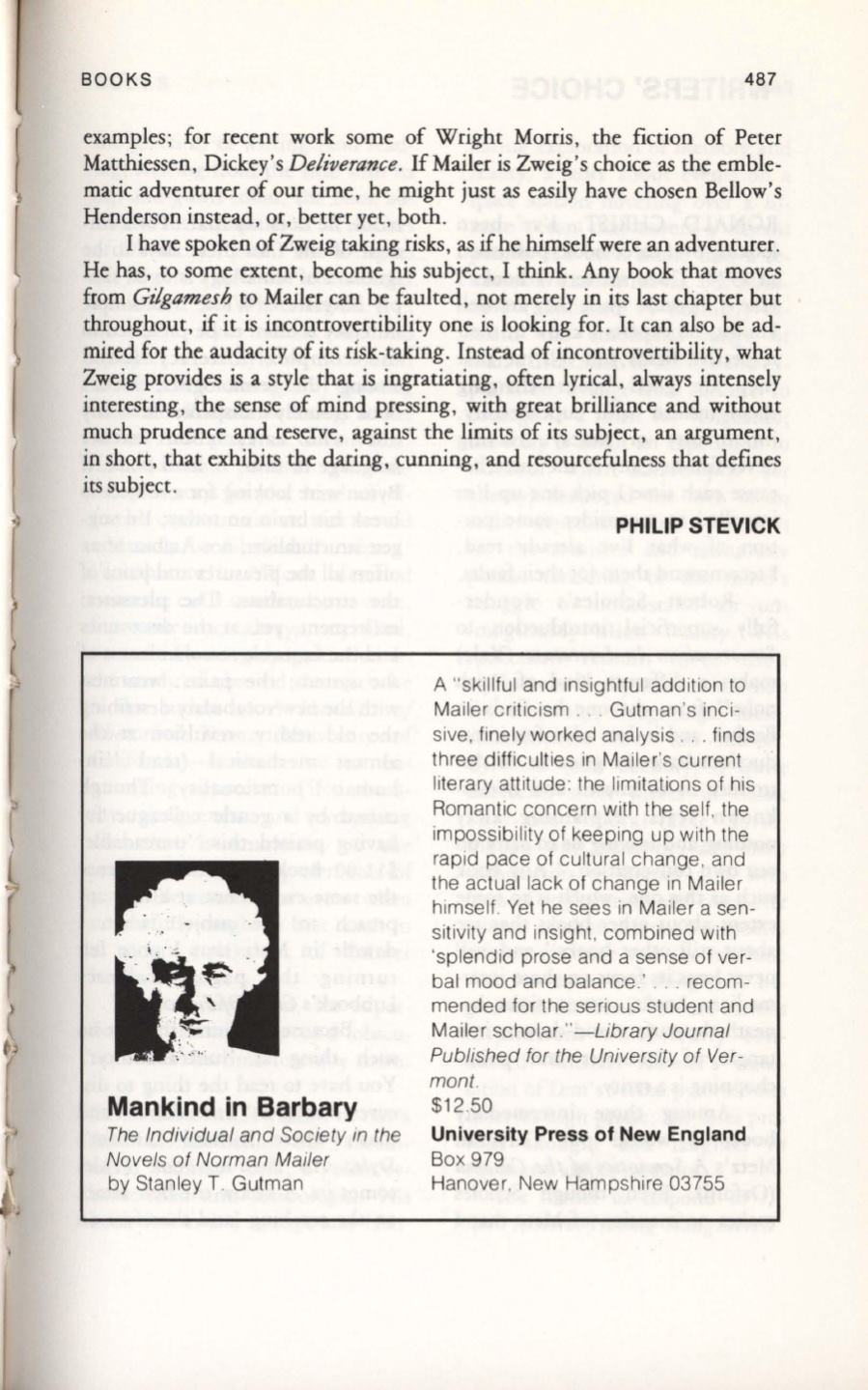
[
BOOKS
487
examples; for recent work some of Wright Morris, the fiction of Peter
Matthiessen, Dickey's
Deliverance.
If Mailer is Zweig's choice as the emble–
matic adventurer of our time , he might just as easily have chosen Bellow's
Henderson instead, or, better yet, both.
I have spoken of Zweig taking risks , as
if
he himself were an adventurer.
He has,
to
some extent, become his subject, I think. Any book that moves
from
Gtlgamesh
to Mailer can be faulted, not merely in its last chapter but
throughout ,
if
it is incontrovertibility one is looking for .
It
can also be ad–
mired for the audacity of its risk-taking. Instead of incontrovertibility, what
Zweig provides is a style that is ingratiating, often lyrical, always intensely
interesting, the sense of mind pressing, with great brilliance and without
much prudence and reserve, against the limits of its subject, an argument,
in short, that exhibits the daring, cunning, and resourcefulness that defines
its subject.
Mankind in Barbary
The Individual and Society in the
Novels of Norman Mailer
by Stanley T. Gutman
PHILIP STEVICK
A "skillful and insightful addition to
Mailer criticism . .. Gutman's inci–
sive, finely worked analysis . .. finds
three difficulties in Mailer's current
literary attitude : the limitations of his
Romantic concern with the self, the
impossibility of keeping up with the
rapid pace of cultura l change , and
the actual lack of change in Mailer
himself. Yet he sees in Mailer a sen–
sitivity and insight, combined with
'splendid prose and a sense of ve r–
bal mood and balance .' ... recom–
mended for the serious student and
Mailer scholar.
" -Library Journal
Published for the University of Ver–
mont.
$12.50
University Press of New England
Box 979
Hanover, New Hampshire 03755


